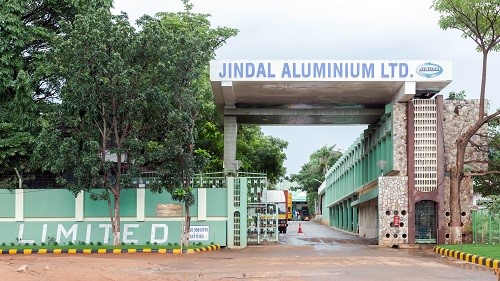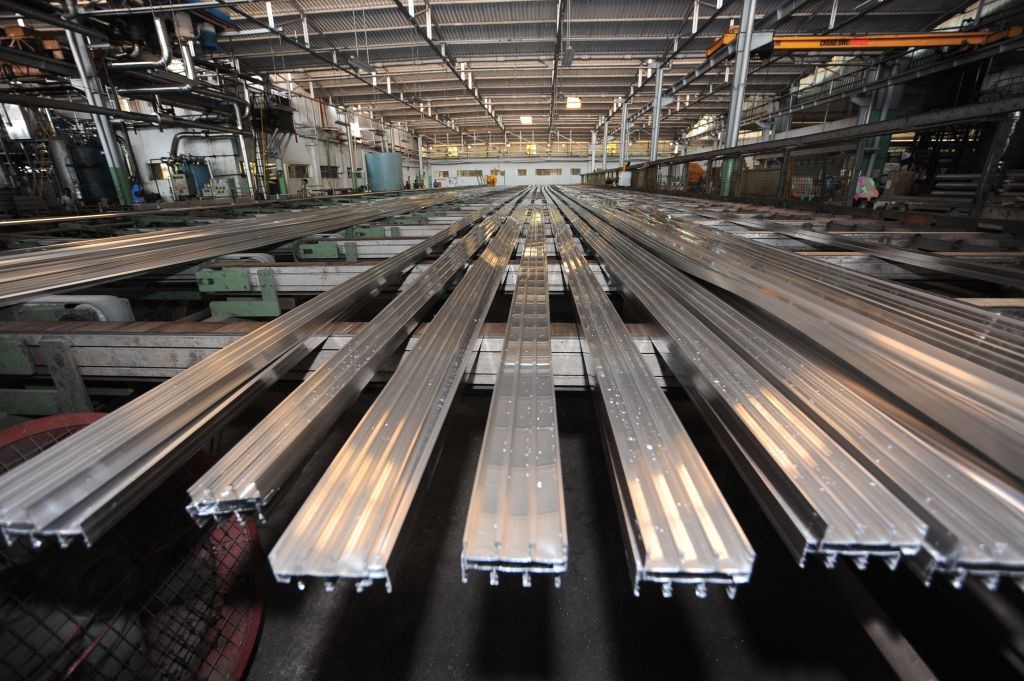

India’s largest aluminium extrusion company with a legacy spanning 50 years, Jindal Aluminium Ltd. has not observed any aftermath on its exports and predicts the international demand to rise with the emerging markets, commented by Managing Director, Pragun Jindal Khaitan.

Mr Khaitan acclaimed that the growth of exports would require the Indian aluminium product manufacturers are given a competitive playing field with the international organizations.
Jindal Aluminium generally exports 15%-20% of its products. “We did not experience any rise or drop in export, with 15% to 20% of the total output dispersed as per demand, thus keeping the cycle constant,” Mr Pragun said.
However, he pointed out that since the US has imposed a 48% anti-dumping duty on aluminium sheets and coils from India, the exports remain depressed. Jindal Aluminium is managing this shortfall by changing the focus of its efforts towards export to other nations.
Mr Jindal also added: “Due to the well-spread product mix, the company makes up for the demand loss in a particular sector by pushing its line of products in another segment, not only in domestic but also in the international market.”
The pandemic opened new markets like Europe, Australia, and New Zealand, while the traditional markets of the UK, US, and Gulf Cooperation Council (GCC) nations have adversely impacted, as said by the MD.

“Currently, the global and Indian economies are both scaling up steadily. With the emerging new markets, one can say that exports have a promising future in the years to come provided the Indian downstream Aluminium product manufacturers are given a level playing field with the international counterparts.”
Jindal Aluminium presently holds 25%-30% of the extruded aluminium market share and 10% to 12% in the flat-rolled products category.
While commenting on the current financial year’s performance, he said: “The Company has grown organically and aims to bring the overall sales to the same levels as the previous fiscal.”
“But inorganic growth that avoids the traps of cultural clash and differing value systems cannot be ignored. It depends entirely on the opportunities available.”
Khaitan said in regards to the operations amid the pandemic: “By the end of the second quarter of FY21, it managed to revive operations up to 65 to 70% due to the recommenced demand in the building and constructions, defence, industrials, and automotive sectors.”
The company operated with full capacity as the demand and supply chain regularized during the October-December quarter.
On the impact on demand, he noted that as aluminium downstream products have a wide-scale application, the reduced demand in one sector does not stunt the growth of the industry. Although the disruption in the global supply chain impacted the manufacturing of these products, the production of Jindal Aluminium did not stop completely.
“Our operations continued in line with the demand. The first quarter of the financial year saw a decline in demand. However, the July-September period witnessed revival due to the resumption and boost to crucial sectors,” he said.
“On a year-on-year (YoY) basis, the revenue in the third quarter of the financial year was on par with the previous levels”, he added.
While discussing on the outlook for the sector, the Jindal Aluminium’s MD said: “The sector to witness a ‘V-shaped’ recovery and safeguard MSMEs from cheap imports, the government should increase import duty on the downstream aluminium products, and the domestically produced primary aluminium should be made available duty free in India.”
“Simultaneously, the government must continue encouraging domestic production for making the country self-reliant”, he said.
Responses








